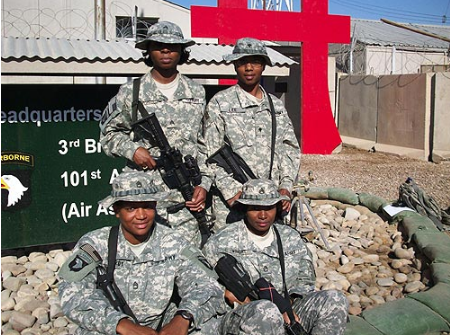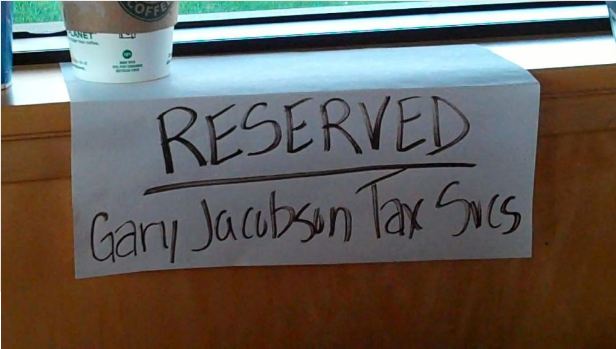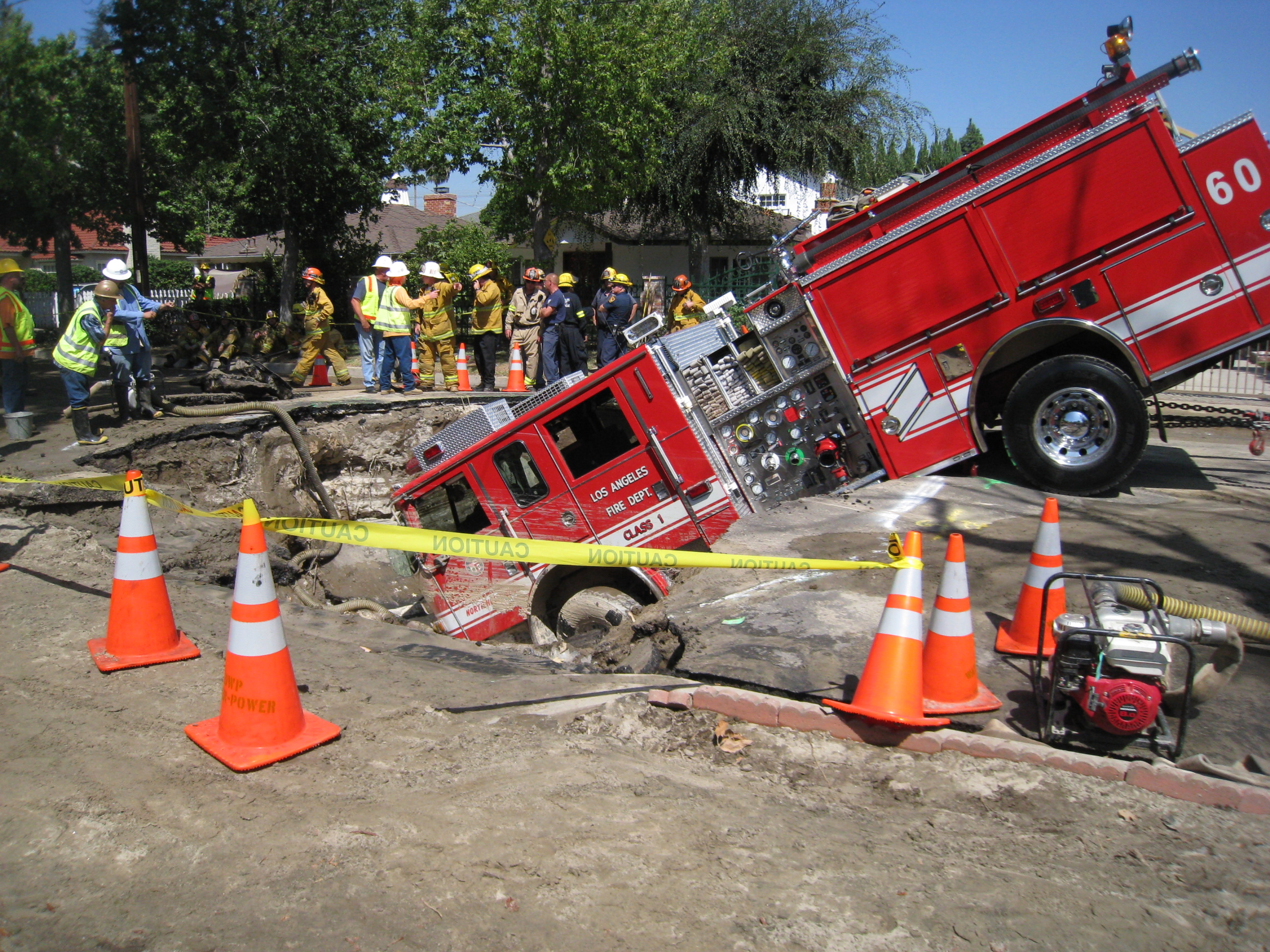Pictures and thank you notes from African-American female soldiers on the front lines in Iraq will live on as part of the History of Women in America at Harvard University’s Radcliffe Institute. For five years during the war, thousands of volunteers with the Sister Soldier Project boxed black beauty products and shipped them to the Middle East. Patricia Nazario speaks with Myraline Morris Whitaker, the brains behind the operation.
Los Angeles native Myraline Morris-Whitaker wanted to help black servicewomen meet military grooming standards, so she came up with the Sister Soldier Project in 2007. The mission was to get deep conditioners, oils and hair relaxers into the hands of soldiers of color deployed in the Middle East. Morris-Whitaker says she started hosting ‘packing parties,’ and the idea skyrocketed.
“Every time I’ve done a packing party,” Morris-Whitaker says,” someone would step up and say, ‘I want to do it next!'”
Also on her checklist for volunteers, Morris-Whitaker says, “…toiletries, hand sanitizer, toothpaste, lotion and things that they think a woman out there will need.”

Camp Stryker in Baghdad: From top left, clockwise: Sgt. Quiannette Crowder, a supply sergeant from Palmdale; Spec. Shani Lee, a supply clerk from Queens, N.Y.; Staff Sgt. Kathaleen Wright, a fuel transporter from Augusta, Ga.; and Sgt. 1st Class Kerensa Hardy, a public affairs officer from Fort Lauderdale, Fla. Ann Simmons / Los Angeles Times
Over five years, the grassroots campaign benefitted thousands of soldiers, including Army Sergeant Quiannette Crowder, who served two tours of duty in Iraq. Her father, Julius Crowder says the Sister Soldier care packages freed him up from shopping at beauty salons for his daughter.
“She told me, well, yeah, there are some women who are volunteering their time. They’re sending a lot of different products out,” says Mr. Crowder. “We really appreciate it.”
But Morris-Whitaker says more than a nice gesture, the care packages were a necessity.
“If hair is longer than the ears,” says Myraline Morris-Whitaker, “it has to be pulled back and tucked under, and as a black woman I just don’t understand how that happens without the right product.”
With dozens of packing parties under her belt, Morris-Whitaker successfully enlisted several corporate sponsors to supply the products. But it was her personal touch that made historians at the Arthur and Elizabeth Schlesinger Library at Harvard’s Radcliffe Institute take note. Morris-Whitaker insisted that volunteers include a handwritten note in each care package. In return, soldiers sent back thousands of heartfelt thank-you cards, emails and pictures expressing gratitude for the comforts of home while serving their country so far away.
Morris-Whitaker donated her collection of letters and images to Harvard University, and The Sister Soldier Project will live on at the Radcliffe Institute for Advanced Study’s Schlesinger Library


